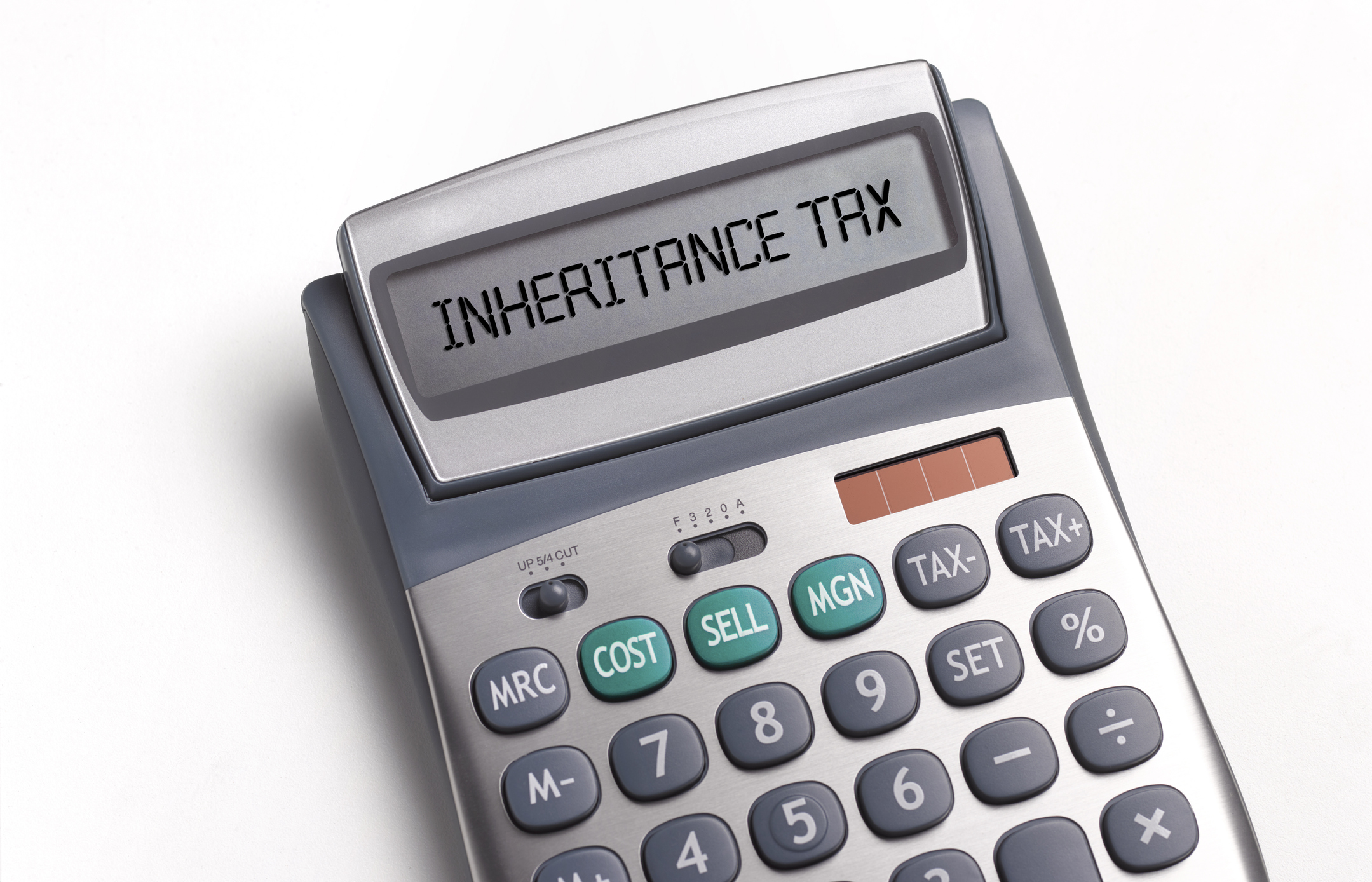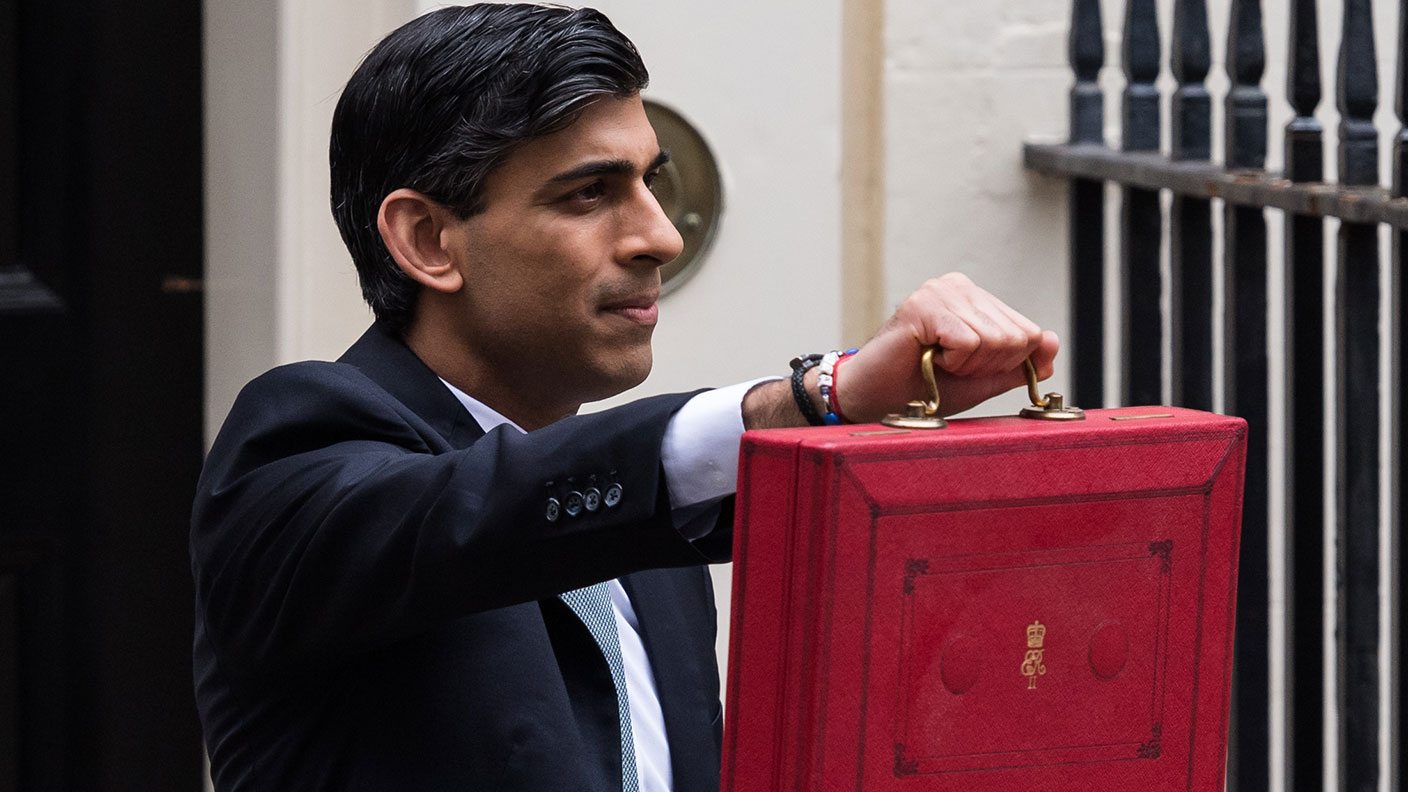Inheritance tax receipts hit £1.2bn
More people are being hit by inheritance tax as rising property prices translates to more estates becoming liable for the tax.


Get the latest financial news, insights and expert analysis from our award-winning MoneyWeek team, to help you understand what really matters when it comes to your finances.
You are now subscribed
Your newsletter sign-up was successful
Want to add more newsletters?

Twice daily
MoneyWeek
Get the latest financial news, insights and expert analysis from our award-winning MoneyWeek team, to help you understand what really matters when it comes to your finances.

Four times a week
Look After My Bills
Sign up to our free money-saving newsletter, filled with the latest news and expert advice to help you find the best tips and deals for managing your bills. Start saving today!
Inheritance tax (IHT) receipts totalled £1.2bn in April and May — the first two months of the current 2023/24 tax year – according to government data published today.
The figure is £100m more than the figure recorded in the same period last year.
The new numbers come amid the Office of Budget Responsibility’s forecasts that £38bn will be raised over the next five years from IHT, with receipts rising to a hefty £8.4bn in the 2027/28 tax year as fiscal drag pulls more people into the IHT net.
MoneyWeek
Subscribe to MoneyWeek today and get your first six magazine issues absolutely FREE

Sign up to Money Morning
Don't miss the latest investment and personal finances news, market analysis, plus money-saving tips with our free twice-daily newsletter
Don't miss the latest investment and personal finances news, market analysis, plus money-saving tips with our free twice-daily newsletter
It comes amid new data that shows that a significant number of high net worth individuals are failing to plan ahead, with 28% of those with investable assets of £250,000 not putting measures in place to deal with IHT, according to the latest Saltus Wealth Index Report.
Inheritance tax bands frozen
Chancellor Jeremy Hunt confirmed the threshold for inheritance tax (IHT) would be frozen until April 2028 in his Autumn Statement last year, despite double-digit inflation.
IHT has become “a real hot potato” in recent weeks, says Laura Hayward from wealth management firm Evelyn Partners, with pressure on the government to get rid of the tax.
“However, it’s important to remember that no decisions have been announced as of yet and while this debate bubbles away more families are being dragged into paying IHT,” she said.
Hayward added: “Today’s fresh data release from HMRC shows the extent to which the Treasury is continuing to benefit from ever increasing IHT receipts. What’s more, given inflationary growth of asset values coupled with frozen allowances, as things stand the cash cow that is IHT looks set to be very lucrative for the Treasury for many years to come.”
How can you minimise your inheritance tax bill?
“Families should use this update from HMRC as a reminder to take a close look at their tax planning with a professional adviser to ensure they don’t pay more tax than they need to,” said Hayward.
Increasing numbers of families are: around 48% more in the past decade are deliberately using Potentially Exempt Transfers (PETs). These are gifts of unlimited value that become IHT-free if the person lives seven years after giving them. Around 6,610 families gave away money this way to reduce their IHT liability in 2019/20, up from the 4,500 families in 2009/10.
- Make use of the annual gift allowance of up to £3,000 per tax year - this will not be subject to IHT even if you do die within seven years. And if you didn’t use the allowance last year, you can combine it and pass on £6,000. Wedding gifts of £5,000 to children and £2,500 to grandchildren are also protected from IHT.
- Make regular gifts from surplus income of unlimited value - as long as they’re from excess income and don’t affect your personal standard of living.
- Set up a trust. Many people choose to make gifts in trust so that the money can only be accessed at a certain time or for a particular reason. Life insurance can also be set up in a trust, so that the money can be accessed immediately to pay an inheritance tax bill.
- Donate to charity. If you donate at least 10% of your estate to charity, you could benefit from a 4% discount on your IHT rate, lowering it from 40% to 36%.
You can read more about how to reduce your IHT bill.
Join us at the MoneyWeek Summit on 29.09.2023 at etc.venues St Paul's, London.
Tickets are on sale at www.moneyweeksummit.com
MoneyWeek subscribers receive a 25% discount.
Get the latest financial news, insights and expert analysis from our award-winning MoneyWeek team, to help you understand what really matters when it comes to your finances.
Katie is deputy editor of Times Money Mentor and long-time contributor to the Sunday Times where she started on the Irish desk in 2012 and spent 10 years covering news, culture, travel, personal finance and celebrity interviews.
Her investigative work on financial abuse has examined the response of banks, the Financial Ombudsman and the child maintenance service to victims, and resulted in a number of debt and mortgage prisoners being set free - and a nomination for Best Finance Story of the Year at the Headline Money awards in 2021 and 2022.
Katie was also shortlisted for Freelance Journalist of the Year at the Headline Money awards in 2022, 2023 and 2024 and won Personal Finance Journalist of the Year at The British Bank Awards 2022.
-
 Can mining stocks deliver golden gains?
Can mining stocks deliver golden gains?With gold and silver prices having outperformed the stock markets last year, mining stocks can be an effective, if volatile, means of gaining exposure
-
 8 ways the ‘sandwich generation’ can protect wealth
8 ways the ‘sandwich generation’ can protect wealthPeople squeezed between caring for ageing parents and adult children or younger grandchildren – known as the ‘sandwich generation’ – are at risk of neglecting their own financial planning. Here’s how to protect yourself and your loved ones’ wealth.
-
 Is Britain heading for a big debt crisis?
Is Britain heading for a big debt crisis?Opinion Things are not yet as bad as some reports have claimed. But they sure aren’t rosy either, says Julian Jessop
-
 Inheritance tax receipts on track for record year as take hits £2.6bn
Inheritance tax receipts on track for record year as take hits £2.6bnMore people are being hit by inheritance tax as rising property prices translates to more estates becoming liable for the tax.
-
 Inheritance tax receipts hit £1.2bn
Inheritance tax receipts hit £1.2bnNews More people are being hit by inheritance tax amid rising property prices - and 16m are unaware of whether or not their families could be left to pay a bill when they die.
-
 Will IHT be cut?
Will IHT be cut?News Sunak could make cuts to Inheritance Tax cuts later this year, reports suggest. We explain what this could mean for you.
-
 One in five taxpayers to pay higher rate of income tax by 2027
One in five taxpayers to pay higher rate of income tax by 2027News Frozen income tax thresholds mean considerably more middle-earners will have to start paying higher-rate tax. We explain what you can do to avoid the fiscal drag.
-
 Key dates for 2023: here are the dates you need to know when it comes to your money
Key dates for 2023: here are the dates you need to know when it comes to your moneyNews There is no shortage of important dates to be aware of this year – which are likely to affect your financial health. We run through the key dates in 2023 you need to know about when it comes to your money.
-
 What is the pensions lifetime allowance and should you be worried about hitting it?
What is the pensions lifetime allowance and should you be worried about hitting it?Analysis In his recent Budget the chancellor froze the pensions lifetime allowance at £1,073,100. That may sound like a lot to have in your pot, but you could easily find yourself hitting it. Saloni Sardana explains what it is, and what the freeze means for you.
-
 Should the pensions triple lock be scrapped?
Should the pensions triple lock be scrapped?Briefings The pensions triple lock had been a key plank of the government’s offer to older voters, but the promise to gold-plate the state pension is looking increasingly unaffordable.
